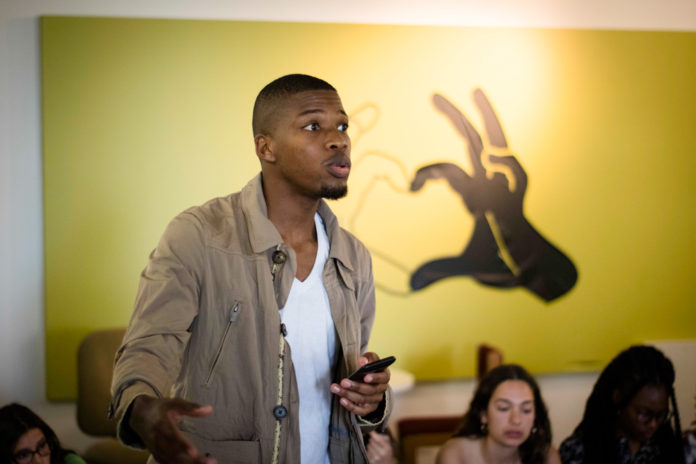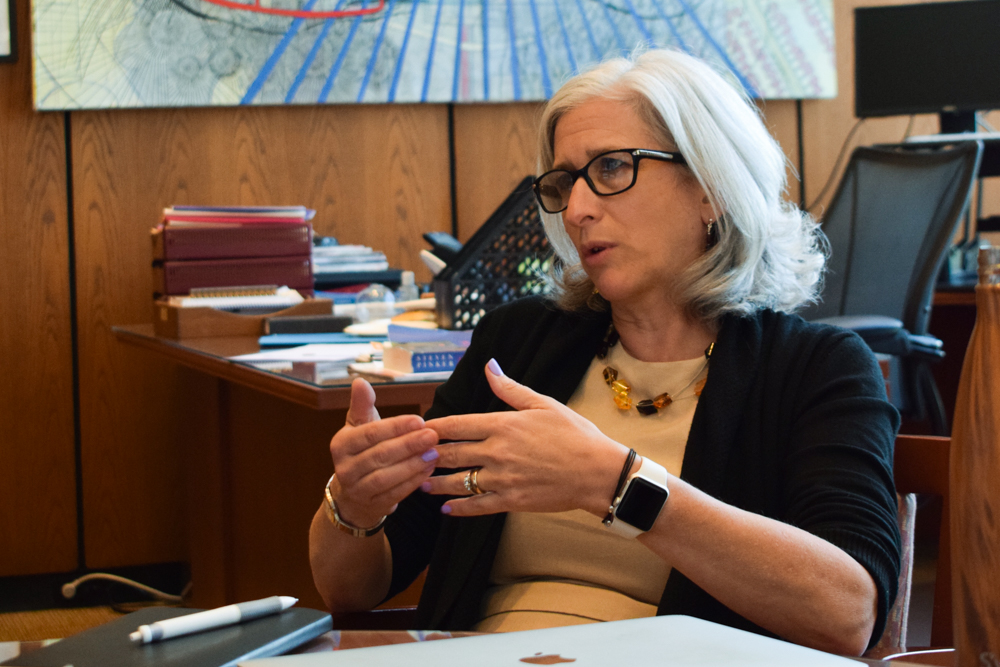
The newly established Associated Students of Occidental College (ASOC) Special Committee for Direct Action issued nine demands of Occidental’s administration focused on social justice and equity via campus-wide email April 6. Among the demands were calls to rename the pool donated by alumna and former board of trustees member Jennifer Townsend Crosthwaite following the discovery of a blackface photo of Crosthwaite, rescind known eugenicist Paul Popenoe’s honorary degree and establish black studies as a department. Occidental President Jonathan Veitch, ASOC President Jacques Lesure and Dean of Students Rob Flot met to discuss the feasibility and methods of addressing the demands shortly after, according to Lesure.
Lesure and Veitch addressed each of the nine demands individually in a joint email sent to the student body April 11. The pool will receive a new name informed by community input, and the revocation of the Popenoe degree will be dependent on the board of trustees, according to the email. The funding of an archival project about Occidental’s present and past injustices will require long-term strategies, according to the email. In response to calls for additional support for underrepresented students in STEM, the email summarized efforts that are already underway to make improvements, such as an initiative to expand the pipeline for women and students of color in STEM, economics and computer science.
The email identified key stakeholders, such as faculty, the dean of student affairs, the dean of the college and the board of trustees, who will work to address demands for increased support for black student leadership, engaging more community-based learning and supporting student leadership development. The email also said that the decision to departmentalize black studies is dependent on faculty and student interest and the input of various stakeholders. The final demand requested that Occidental establish a fundraising campaign to address student demands. Veitch and Lesure’s email highlighted an upcoming capital campaign expected to benefit marginalized students.
“A major component of that [capital] campaign is devoted to those elements that make us unique,” the email reads. “We are proud of our diversity and we are committed to raising funds for initiatives, such as those outlined in this statement, which enhance the experience of our Black students, and also students who identify as LGBTQ+, Latinx, API, international and first generation students.”
ASOC Senate established the Special Committee for Direct Action via a vote March 25. The special committee is intended to engage student interests, according to Lesure and committee member Anjolie Charlot (first year). The committee is a group of over 50 students who are focused on mobilizing direct actions in accordance with mission statements across ASOC branches, according to Lesure and Charlot. According to Lesure, creating the committee as part of ASOC will provide resources for student causes.
“By creating a committee in ASOC, echoing and supporting the work of student organizers can more effectively take place across student leadership,” Lesure and Charlot said via email. “Tools such as email listservs, financial resources, and opportunities to connect with administration become more accessible under this model.”
The Special Committee for Direct Action is designed to be a long-term committee with plans to incorporate many projects beyond the nine demands, according to Lesure and Charlot.
One result of meetings between committee members and administration has been the identification of stakeholders who will be best suited to implement changes, according to Lesure. Among these stakeholders is Vice President for Academic Affairs and Dean of the College Wendy Sternberg. The coordination of efforts across Occidental’s community is an essential step in creating progress, according to Sternberg.
“Rather than thinking of this as, ‘The students are demanding this, how is the administration responding?’ I think of this as students identifying issues that are of concern and, through the process of shared governance, we have to collectively resolve these issues,” Sternberg said.

While there will be significant changes made as a result of the nine demands, there are some restrictions, according to Sternberg. Although it remains unknown whether black studies will receive departmental status, the tenure track position vacated by professor Courtney Baker will remain in the black studies program, according to Sternberg.
“It is not clear exactly what departmental affiliation it will have, but the college fully supports the continuation of professor Baker’s tenure line to provide support for the black studies program,” Sternberg said.
The decision of who will take on that role will be decided by the black studies advisory committee and the academic planning committee, however, it will be a tenured position, according to Sternberg.
“The black studies advisory committee may recommend that we hire a senior faculty member that can come in and be appointed specifically to the black studies program, provide leadership to the program and coordinate with other departments about the courses that are offered,” Sternberg said. “Those are not the kinds of things that we would ask an untenured faculty member to do, so we don’t put pre-tenure faculty members into interdisciplinary programs as their departmental home.”
The committee is currently working to establish a strong foundation for future activism, according to Lesure and Charlot.
“We are currently forming accountability groups to continue working on specific demands,” Lesure and Charlot said in an email. “These groups will ensure that through the end of this semester and moving into the summer, momentum will not be lost and our three months away from campus do not allow for erasure of the work that has already been done.
![]()






























